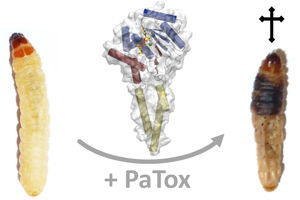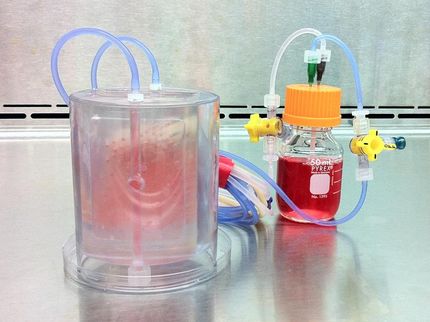A lab rat - created in the lab
Tel Aviv University is bioengineering tissues as an alternative to animal testing
It's illegal for health products with medical formulations to be accepted by the U.S. food and Drug Administration without tests on animals - a situation that has serious ethical and moral implications. New research in the field of tissue engineering by Prof. Amit Gefen of Tel Aviv University's Faculty of Engineering holds a promise that far fewer lab animals will be needed for the necessary experimental trials.
Dr. Gefen's research into fat cells, published in Tissue Engineering, has led him to conclude that the necessary tissue can be produced from fat, skin, bone and muscle cells. His breakthrough study could have hundreds of applications in the pharmaceutical and medical world.
"Drugs make our lives better, and basic science is needed to push new drugs through clinical trials. But there is no doubt that an untold number of animals are sacrificed in the laboratory setting - both in basic research and in applied conditions when testing particular molecules," says Prof. Gefen, who heads TAU's Teaching Laboratory for Cell and Tissue Engineering. As a medical researcher himself, he was dependent on animal trials for testing new hypotheses he developed for living systems - until recently.
Bridging the worlds of biology and engineering, Prof. Gefen is now using adult rat stem cells - cells that can be stimulated to create skin, bone, fat and muscle tissue from an animal in a laboratory setting. In his own work on studying the mechanical properties of pressure ulcers, many tissue replications were needed. His new approach no longer requires the sacrifice of large numbers of animals. When an experiment is over, not one animal life has been lost.
The use of engineered tissues, says Prof. Gefen, may also be more scientifically efficient than using those from a living source. "The model we've created offers a very reliable method for researchers asking questions about basic science, and those investigating new drugs. We can injure tissue in a very controlled environment and grow muscle tissue without blood vessels, thereby neutralizing certain variables that often cloud what's happening in an experiment."
In the future, Prof. Gefen hopes that similar models can be based on live human tissue, but that could be a number of years down the road.
Topics
Organizations
Other news from the department science

Get the life science industry in your inbox
By submitting this form you agree that LUMITOS AG will send you the newsletter(s) selected above by email. Your data will not be passed on to third parties. Your data will be stored and processed in accordance with our data protection regulations. LUMITOS may contact you by email for the purpose of advertising or market and opinion surveys. You can revoke your consent at any time without giving reasons to LUMITOS AG, Ernst-Augustin-Str. 2, 12489 Berlin, Germany or by e-mail at revoke@lumitos.com with effect for the future. In addition, each email contains a link to unsubscribe from the corresponding newsletter.
Most read news
More news from our other portals
Last viewed contents
Cluster_headache
Cyclobenzaprine
Jenkem
Retroverted_uterus
Plastid_transformation
International_Red_Cross_and_Red_Crescent_Movement
Flynn_effect
Pinworm
Bashar_al-Assad
Optical_tweezers



















































